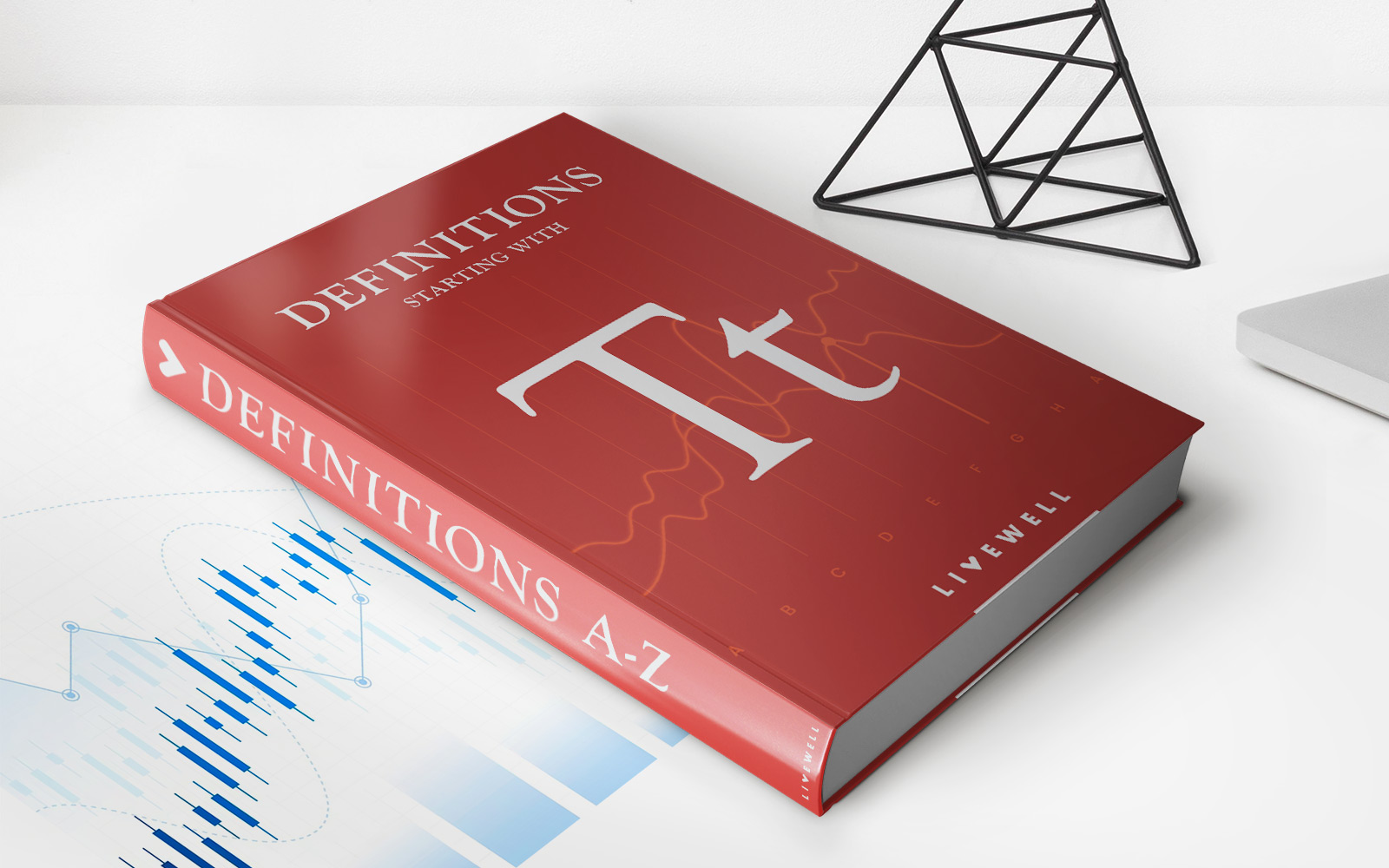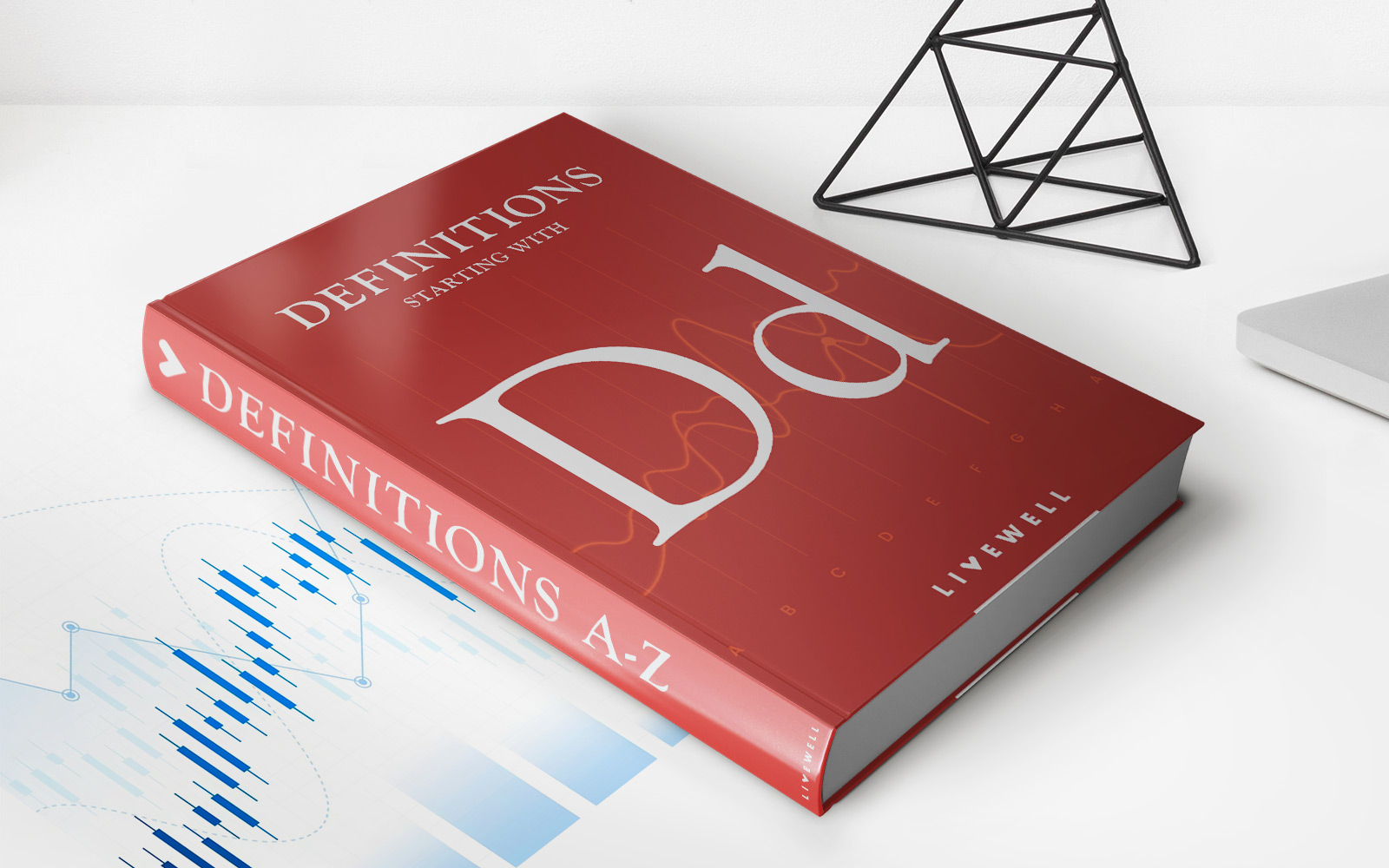Home>Finance>What Happens If A Minor Is The Beneficiary On A Life Insurance Policy?


Finance
What Happens If A Minor Is The Beneficiary On A Life Insurance Policy?
Published: October 16, 2023
Discover the potential financial implications when a minor is named as the beneficiary on a life insurance policy. Secure your family's future with proper financial planning and guidance.
(Many of the links in this article redirect to a specific reviewed product. Your purchase of these products through affiliate links helps to generate commission for LiveWell, at no extra cost. Learn more)
Table of Contents
Introduction
Life insurance is an important financial tool that provides financial security to your loved ones in the event of your passing. When purchasing a life insurance policy, one of the most critical decisions you need to make is choosing a beneficiary, the person or entity who will receive the death benefit.
While adults are commonly selected as beneficiaries, there may be instances where you want to name a minor as the beneficiary of your life insurance policy. This decision can have significant implications, as minors are not legally able to handle financial matters on their own. So, it’s essential to understand what happens when a minor is named as a beneficiary and the available options to ensure the funds are protected and used appropriately.
In this article, we will discuss the considerations and options regarding naming a minor as the beneficiary on a life insurance policy. We will explore custodial accounts, trusts, guardianships, and the Uniform Transfers to Minors Act (UTMA), as well as the impact on life insurance payouts and important considerations for policyholders.
Understanding Life Insurance Beneficiaries
Before delving into the topic of minors as life insurance beneficiaries, it’s important to have a clear understanding of what a beneficiary is and their role in the life insurance policy.
A beneficiary is the person or entity designated to receive the death benefit from a life insurance policy. The death benefit is the sum of money the insurance company pays out upon the insured’s passing. The primary purpose of naming a beneficiary is to ensure that the policy proceeds go to the intended recipient and help provide financial support when needed the most.
Typically, beneficiaries are adults, such as spouses, children, siblings, or other family members. However, it’s essential to remember that beneficiaries can also be organizations, charities, or even trusts.
When selecting a beneficiary, it’s important to consider their financial needs, relationship to the insured, and any potential tax implications. Additionally, it’s crucial to review and update the beneficiary designation as life circumstances change, such as marriage, divorce, birth of a child, or the passing of a loved one.
Now that we have a basic understanding of beneficiaries, let’s explore the specific considerations when minors are named as beneficiaries on a life insurance policy.
Minors as Life Insurance Beneficiaries
Naming a minor as the beneficiary on a life insurance policy can present unique challenges. Since minors are not legally able to manage financial matters on their own, special arrangements need to be made to ensure that the funds are protected and used appropriately on their behalf.
There are several options available to address the issue of minors as beneficiaries:
- Custodial Accounts: One option is to set up a custodial account under the Uniform Gifts to Minors Act (UGMA) or the Uniform Transfers to Minors Act (UTMA). These custodial accounts allow a designated adult, known as the custodian, to manage the funds for the minor until they reach the age of majority, usually 18 or 21, depending on the state.
- Trusts: Another option is to establish a trust and designate the minor as the beneficiary. By creating a trust, you can specify how and when the funds should be distributed to the minor. You can also appoint a trustee who will be responsible for managing and distributing the funds in accordance with your instructions.
- Guardianships: In some cases, a legal guardianship may be appropriate. This involves appointing a guardian who will have the authority to manage the minor’s finances on their behalf. The guardian will be responsible for making financial decisions and ensuring that the funds are used for the minor’s wellbeing.
Each option has its advantages and considerations. It’s crucial to consult with a financial advisor or an estate planning attorney to determine the best approach based on your specific circumstances and the laws of your jurisdiction.
It’s important to note that the process of choosing a guardian or trustee should not be taken lightly. It’s crucial to select a responsible and trustworthy individual who will act in the minor’s best interests. Additionally, it’s advisable to outline clear instructions regarding the use of the funds to ensure they are properly utilized for the minor’s care, education, and overall wellbeing.
Now that we’ve explored the different options for managing life insurance proceeds for minors, let’s discuss the impact on life insurance payouts when a minor is named as a beneficiary.
Custodial Accounts
One option for managing life insurance proceeds for a minor beneficiary is to establish a custodial account. Custodial accounts are set up under the Uniform Gifts to Minors Act (UGMA) or the Uniform Transfers to Minors Act (UTMA), depending on the state.
With a custodial account, an adult, known as the custodian, is appointed to manage the funds on behalf of the minor until they reach the age of majority, usually 18 or 21, depending on state law. The custodian has the responsibility to make decisions regarding the use of the funds for the minor’s benefit.
Setting up a custodial account is a relatively straightforward process. The custodian establishes the account in the minor’s name and manages the assets until the minor reaches adulthood. The custodial account can hold various assets, including cash, stocks, bonds, or other types of investments.
One advantage of custodial accounts is their flexibility. The custodian has the authority to use the funds for the minor’s benefit, including educational expenses, healthcare needs, or other necessary expenses. However, it’s important to note that the custodian must act in the minor’s best interests and cannot use the funds for personal gain.
While custodial accounts offer simplicity and flexibility, there are some considerations to keep in mind. Once the minor reaches the age of majority, the funds in the custodial account become their property, and they can use the funds as they see fit. This may not align with your intended purpose for the life insurance proceeds.
Furthermore, custodial accounts have potential tax implications. Depending on the amount of income generated by the account, the minor may be subject to income tax. It’s advisable to consult with a tax professional to understand the tax implications specific to your situation.
In summary, custodial accounts can be a suitable option for managing life insurance proceeds for a minor beneficiary. They provide flexibility in utilizing the funds for the minor’s benefit, but it’s important to consider the potential loss of control once the minor reaches adulthood and the potential tax implications. Consulting with a financial advisor or an estate planning attorney can help you determine if a custodial account is the right choice for your situation.
Trusts
Another option for managing life insurance proceeds for a minor beneficiary is to establish a trust. A trust is a legal arrangement where one party, known as the grantor, transfers assets to a trustee to manage on behalf of the beneficiaries. Trusts provide greater control and flexibility in how the funds are used and distributed.
When creating a trust, you can specify the conditions and instructions for distributing the life insurance proceeds to the minor beneficiary. This allows you to have a say in how and when the funds are used, ensuring they are utilized for the minor’s benefit and in accordance with your intentions.
There are various types of trusts that can be used for this purpose, including revocable living trusts, irrevocable trusts, and testamentary trusts. The type of trust that is most appropriate will depend on your specific circumstances and goals.
One advantage of using a trust is that you can appoint a trustee who will be responsible for managing and distributing the funds. The trustee has a legal obligation to act in the best interests of the minor beneficiary and follow the instructions outlined in the trust document.
By utilizing a trust, you can also establish specific conditions for the distribution of the funds. For example, you may stipulate that the funds should be used for educational expenses, healthcare needs, or other specific purposes. This ensures that the funds are used in a manner that aligns with your wishes and provides for the minor’s long-term well-being.
Additionally, trusts can offer tax advantages. Depending on the type of trust and the amount of income generated, there may be potential tax benefits or savings. Consulting with a tax professional or an estate planning attorney can help you understand the tax implications associated with establishing a trust.
It’s important to note that creating and managing a trust can involve more complex legal and administrative processes compared to custodial accounts. Therefore, it’s advisable to consult with an estate planning attorney who can guide you through the trust creation process and ensure that your wishes are accurately reflected in the trust document.
In summary, trusts provide greater control and flexibility in managing life insurance proceeds for a minor beneficiary. By establishing a trust, you can appoint a trustee, outline specific conditions for the use of the funds, and ensure that the funds are used in a manner that aligns with your intentions. While trusts may involve more complexity, consulting with an attorney can help ensure that your wishes are properly documented and executed.
Guardianships
When considering how to manage life insurance proceeds for a minor beneficiary, another option to explore is establishing a guardianship. A guardianship involves appointing a guardian who will have legal authority over the minor’s finances and well-being.
By naming a guardian in your estate planning documents, you can ensure that the life insurance proceeds are managed and used for the minor’s benefit in accordance with your wishes. The guardian will have the responsibility of making financial decisions on behalf of the minor and ensuring that the funds are used for their care, education, and overall well-being.
Establishing a guardianship requires legal proceedings, and the court will need to confirm the appointment of the guardian. It’s important to note that the process and requirements for establishing a guardianship may vary depending on your jurisdiction, so consulting with an attorney who specializes in estate planning is advisable.
When selecting a guardian, it’s crucial to choose someone who is responsible, trustworthy, and has the best interests of the minor at heart. The guardian should be financially capable and able to manage the life insurance proceeds effectively. It’s also important to have open and honest discussions with the potential guardian to ensure they are willing and able to take on this role.
One factor to consider when appointing a guardian is that they will have significant control over the funds until the minor reaches adulthood. Therefore, it’s essential to establish clear instructions regarding the use of the funds and regularly communicate with the guardian to ensure that the funds are being used appropriately and in line with your intentions.
It’s important to note that the guardianship ends once the minor reaches the age of majority, at which point they will gain full control over the life insurance proceeds. It’s advisable to monitor the situation and provide guidance to the minor as they transition into managing their own finances.
In summary, establishing a guardianship can provide a secure and legally binding framework for managing life insurance proceeds for a minor beneficiary. By selecting a trusted guardian and providing clear instructions, you can ensure that the funds are used for the minor’s benefit and well-being. It’s important to follow the necessary legal procedures and work closely with an attorney to establish a guardianship that aligns with your wishes and protects the best interests of the minor.
Uniform Transfers to Minors Act (UTMA)
When considering how to manage life insurance proceeds for a minor beneficiary, one option to explore is utilizing the Uniform Transfers to Minors Act (UTMA). The UTMA is a state law that allows for the transfer of assets to a minor without the need for a trust or guardianship. It provides a legal framework for managing assets for the benefit of a minor until they reach the age of majority.
Under the UTMA, a custodial account can be established in the minor’s name, with an adult custodian responsible for managing the assets. The custodian has the fiduciary duty to act in the best interest of the minor and use the assets for their benefit.
The UTMA allows for a wide range of assets to be transferred to the custodial account, including cash, securities, real estate, and other types of property. The funds in the account are intended to be used for the minor’s care, education, healthcare, and other expenses that contribute to their well-being.
While the UTMA provides flexibility in managing assets for a minor, it’s essential to consider a few key points. First, once the minor reaches the age of majority, typically 18 or 21, depending on state law, they gain full control over the funds in the custodial account. This means that they can decide how the money is used, which may not align with your original intentions.
Second, it’s important to select a custodian who is responsible and trustworthy. The custodian will have the authority to make decisions regarding the assets in the account and should act in the minor’s best interest. Regular communication with the custodian and monitoring the account’s activity can help ensure the proper use of the funds.
Finally, it’s important to consider the potential tax implications of utilizing a UTMA account. Income generated from the assets in the account may be subject to taxation, and it’s advisable to consult with a tax professional to understand the specific tax obligations.
In summary, the UTMA provides a legal framework for managing assets for the benefit of a minor without the need for a trust or guardianship. While offering flexibility, it’s crucial to consider the potential loss of control once the minor reaches adulthood and the tax implications associated with UTMA accounts. Consulting with a financial advisor or an estate planning attorney can help you determine if the UTMA is the right option for managing life insurance proceeds for a minor beneficiary.
Impact on Life Insurance Payouts
Naming a minor as the beneficiary on a life insurance policy can have implications for how the life insurance payout is handled. It’s important to understand these implications to ensure that the funds are used appropriately for the minor’s benefit.
When a minor is named as the beneficiary, insurance companies typically require that a custodial account, trust, or guardianship is established to manage the funds until the minor reaches adulthood. This ensures that the money is protected and used in the best interest of the minor.
If a custodial account is selected, the life insurance proceeds would be deposited into the account, and a designated custodian would have the responsibility of managing the funds on behalf of the minor. The custodian would have the authority to make financial decisions for the minor’s benefit, such as paying for education expenses or other necessary needs.
If a trust is established, the life insurance payout would be transferred to the trust, and a trustee would be responsible for managing and distributing the funds according to the terms outlined in the trust document. The trustee would have a legal obligation to act in the best interest of the minor and follow the instructions provided.
In the case of a guardianship, the life insurance payout would be managed by the appointed guardian, who would have the authority to make financial decisions on the minor’s behalf. The guardian would be responsible for using the funds for the minor’s care, education, and overall well-being.
It’s important to note that the terms and conditions of the life insurance policy, as well as the state laws, can impact how the payouts are handled. It’s advisable to review the policy and consult with a financial advisor or an estate planning attorney to ensure compliance with any legal requirements and to determine the most appropriate option for managing the funds.
It’s worth mentioning that if a minor is named as the beneficiary without any arrangements in place for managing the funds, the court may appoint a guardian or establish a custodial account or trust to handle the life insurance payout on behalf of the minor.
In summary, naming a minor as the beneficiary on a life insurance policy requires setting up a custodial account, trust, or guardianship to ensure the proper management and use of the funds. By selecting the appropriate option and working closely with legal and financial professionals, you can help ensure that the life insurance payout positively contributes to the minor’s financial security and overall well-being.
Contingent Beneficiaries
When naming a minor as the primary beneficiary on a life insurance policy, it’s also essential to designate contingent beneficiaries. Contingent beneficiaries are individuals or entities who will receive the life insurance proceeds if the primary beneficiary is unable to receive them. Naming contingent beneficiaries is a crucial step in ensuring that the funds are distributed according to your wishes.
If the primary beneficiary is a minor, there may be circumstances where they are unable to receive the life insurance proceeds. For example, if the minor passes away before reaching adulthood or if they are unable to manage the funds due to legal or financial reasons.
By designating contingent beneficiaries, you provide clear instructions for the distribution of the life insurance proceeds in case the primary beneficiary is unable to receive them. Common choices for contingent beneficiaries include other family members, such as siblings, grandparents, or extended family, or even charitable organizations.
When selecting contingent beneficiaries, it’s essential to consider their financial needs, relationship to the insured, and any potential tax implications. It’s also recommended to review and update the contingent beneficiary designation as life circumstances change, such as births, deaths, or changes in relationships.
It’s crucial to communicate your intentions to the contingent beneficiaries and provide clear instructions on how the funds should be used if they become entitled to receive the life insurance proceeds. Regularly reviewing and updating the beneficiary designations ensures that the funds go to the individuals or organizations you intend to support in the event of the primary beneficiary’s incapacity.
Working closely with an estate planning attorney or a financial advisor can help you determine the appropriate contingent beneficiaries and ensure that your wishes are accurately reflected in the life insurance policy.
In summary, naming contingent beneficiaries is an important step in ensuring that the life insurance proceeds are distributed according to your wishes, especially when the primary beneficiary is a minor. By designating contingent beneficiaries, you provide a backup plan in case the primary beneficiary is unable to receive the funds. Regularly reviewing and updating these designations can help ensure that your intentions are upheld, providing financial security for your loved ones and the causes that are important to you.
Considerations for Policyholders
For policyholders considering naming a minor as the beneficiary on a life insurance policy, there are several important considerations to keep in mind to ensure the proper management and utilization of the life insurance proceeds. These considerations include:
- Legal and financial advice: Consulting with an estate planning attorney and a financial advisor can provide valuable guidance in selecting the most appropriate option for managing the funds for the minor beneficiary. They can help navigate the complex legal and financial aspects and ensure compliance with state laws and regulations.
- Choosing the right custodian or trustee: Selecting a responsible and trustworthy custodian or trustee is crucial to ensure the proper management and use of the funds for the minor’s benefit. Consider their financial capability, trustworthiness, and willingness to take on the role.
- Clear instructions: Clearly outline your intentions and instructions regarding the use of the life insurance proceeds for the minor. Whether through a trust document, custodial account agreement, or guardianship plan, provide specific guidelines on how the funds should be utilized, such as for education, healthcare, or other necessary expenses.
- Regular reviews and updates: Life circumstances change, and it’s essential to review and update your beneficiary designations periodically. This ensures that the funds go to the intended beneficiaries and align with your current wishes.
- Communication: Openly communicate with potential custodians, trustees, or guardians about your intentions regarding the life insurance proceeds. Discuss your expectations and regularly engage in dialogue to ensure they are aware of their responsibilities and to address any questions or concerns.
- Accountability and monitoring: Maintain a level of oversight by monitoring the management and use of the funds. Regularly review account statements, communicate with the custodian or trustee, and ensure that the funds are being used appropriately and in accordance with your instructions.
These considerations can help policyholders navigate the complexities of managing life insurance proceeds for minor beneficiaries, ensuring that the funds are protected, properly utilized, and ultimately provide the intended financial security and support for the minor.
It’s important to remember that every situation is unique, and what works for one person may not work for another. Consult with professionals who can provide personalized advice based on your specific circumstances and goals. By taking the time to carefully consider these factors, you can make informed decisions that will have a positive impact on the minor beneficiary’s future.
Conclusion
Naming a minor as the beneficiary on a life insurance policy requires careful consideration and planning to ensure that the funds are managed and used appropriately. By understanding the available options and considerations, policyholders can make informed decisions that will provide financial security for their loved ones.
When naming a minor as the beneficiary, custodial accounts, trusts, and guardianships are common methods for managing the life insurance proceeds. These options offer different levels of control, flexibility, and legal frameworks for overseeing the funds on behalf of the minor.
Establishing a custodial account allows for a designated custodian to manage the funds until the minor reaches adulthood. Trusts offer greater control and flexibility in specifying how and when the funds should be distributed. Guardianships involve appointing a guardian who will have legal authority over the minor’s finances and well-being.
Additionally, it’s essential to consider contingent beneficiaries to ensure that the life insurance proceeds are distributed according to your wishes if the primary beneficiary is unable to receive them.
Policyholders should seek legal and financial advice to navigate the legal requirements and tax implications associated with managing the life insurance proceeds for a minor beneficiary. By choosing the right custodian or trustee, providing clear instructions, and regularly reviewing beneficiary designations, policyholders can help ensure that their intentions are upheld.
Communication and monitoring play a crucial role in ensuring that the funds are used appropriately for the minor’s benefit. By maintaining open dialogue with custodians, trustees, or guardians, and regularly reviewing the management of the funds, policyholders can ensure accountability and proper utilization.
In summary, naming a minor as the beneficiary on a life insurance policy requires careful planning and consideration. By understanding the available options, seeking professional advice, and providing clear instructions, policyholders can protect the financial future of their minor beneficiaries and provide peace of mind for themselves and their loved ones.














